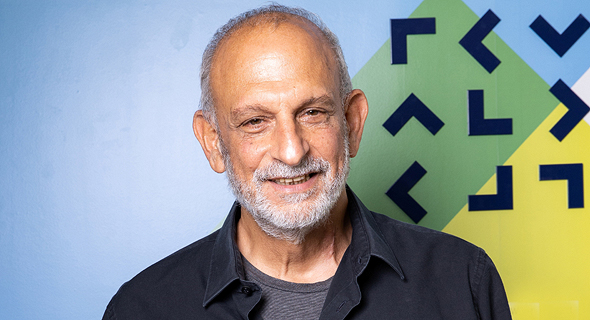Pfizer, AstraZeneca, Merck, and Teva win tender for new Israeli Innovation Lab
The lab, which is set to research digital health and computational biology, has a government budget of $9.9 million
The lab is scheduled to open in 2021 and will join existing labs as part of the program initiated by the IIA. In total, it will have a government budget of NIS 32 million ($9.9 million) as well as additional funding from the group’s partners. The group was awarded a five-year operational franchise and the IIA and National Digital Ministry will finance 85% of a NIS 3 million ($1 million) budget for each startup that joins the lab.
 Aharon Aharon, CEO of the Innovation Authority. Photo: Alex Kolomoisky
Aharon Aharon, CEO of the Innovation Authority. Photo: Alex Kolomoisky
"This last year proved that the healthcare sector is rapidly transitioning to development and use of advanced technologies integrating engineering and biology, which has already led to more accurate results within a shorter time framework,” said Aharon Aharon, CEO of the Innovation Authority. “The expertise and vast experience of the lab partners will enable these companies to establish a significant, trailblazing industry in Israel."
- IIA begins the search for a new CEO
- Space Florida and Israel Innovation Authority shoot for more collaboration
- Delegating the IIA to a government ministry would be an act of madness, says outgoing CEO
“I am thrilled with the establishment of the Innovation Lab, in collaboration with leading global pharma corporations,” added Asher Bitton, Director-General of the National Digital Ministry. “It will enable startups and researchers to cooperate with health organizations, advance groundbreaking studies, build unique data and knowledge bases, and develop innovative solutions to assist the healthcare system.”
The lab is part of the ‘Bio-convergence Strategy’ aimed at establishing a successful, innovative ecosystem in the healthcare sector. Its purpose is to help advance AI-based computational technologies aimed at discovering personalized solutions and treatments. The recent Pfizer and Moderna vaccines to tackle Covid-19 can cite AI as one of the leading factors in their speed during development, and the lab expects this area of healthcare to become more significant in upcoming years.



